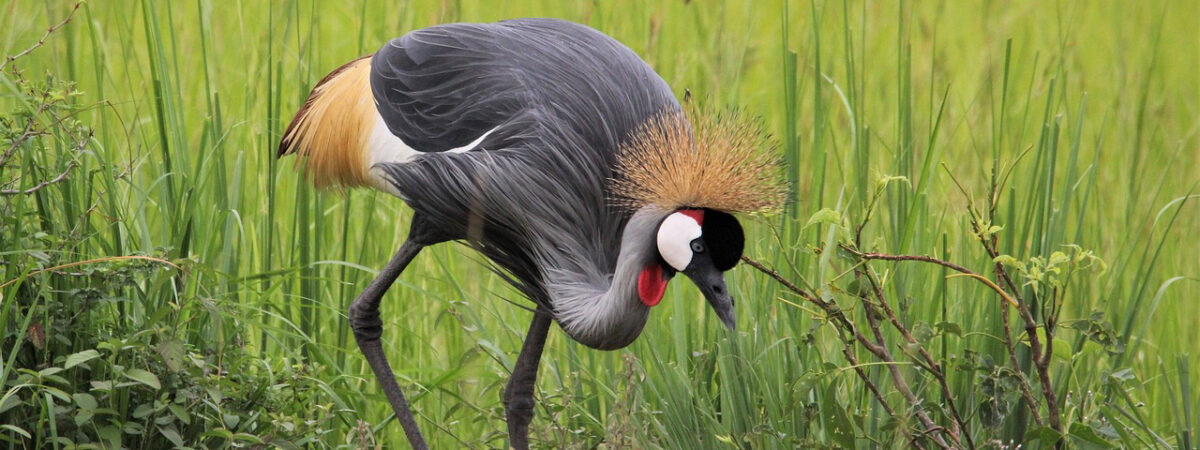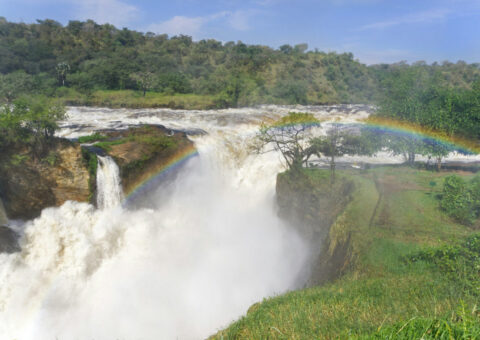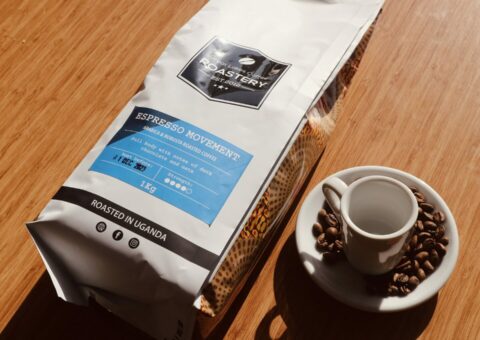The Pearl of Africa, Uganda is renowned for its precious wildlife — and in the heart of this unspoiled habitat, you’ll find the capital city of Kampala. The historic centre of the Buganda kingdom, it was built on seven hills that still remember the tales of the royalty that ruled them. For visitors with a restless soul and a hunger for outdoor adventure, Kampala is just the place to appreciate nature’s diversity.
~ This guide is a collaboration between writer Joyce Wachau Chege and Kennedy Majanga, frequent visitor and local expert ~
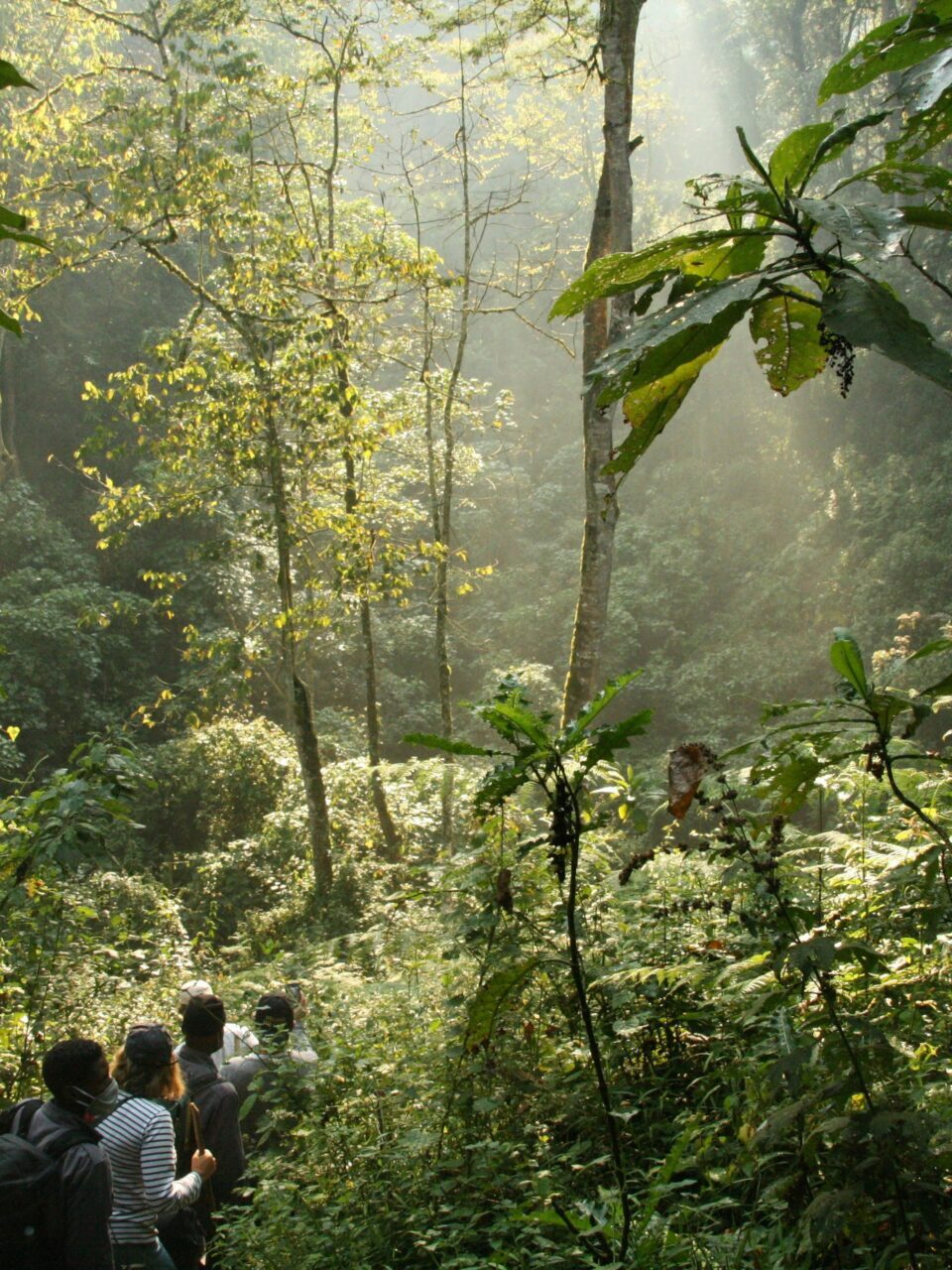
Upon Arrival
The best times to be here are December to February and June to August. This is when you can participate fully in trekking, with the best chance to see gorillas and chimpanzees in Bwindi Impenetrable National Park.
I tell first-time visitors to walk around confidently, but remain alert and aware of their surroundings (i.e. get your head out of your mobile phone!); anyone with less-than-good intentions can smell the distracted newbie in town like a hungry predator.
Along those same lines, people from here know better than to accept food and drink from strangers. Instead, they strictly stick to eating and drinking in restaurants, where quality is assured and you’ll be in safe surroundings.
I also tell travellers to avoid arriving burdened by a lot of luggage: you can find anything you need on the streets of Kampala at an affordable price, and you’ll not only travel light but actively contribute to the economic growth of the place.
The best museum to start your journey and get a sense of the city is the Uganda Museum on the Kira Road, with collections detailing the country’s archaeology and ethnography. Its Cultural Village — a living museum depicting the indigenous architecture and lifestyles of the people of Uganda — features huts constructed with natural and local materials like spear grass for the thatch, reeds, mud and wattle for the walls.
The oldest museum here, with plenty of artefacts to discover it traces the origins of the Ugandan social, political and economic ways of life.
Parents should take their kids to Centenary Park for fun and diverse activities enjoyable for everyone, like bike riding through the park’s green spaces and boating in the small lake.
Food from the Heart
Among the foods my city is most proud of, matoke tops the list. Unripe bananas that have been boiled and mashed, this speciality is often served alongside some meat stew. The Ugandan rolex — an egg omelette and vegetables rolled up and wrapped in a chapati — is also a must, and tasty any time of day. I like to go to 2K Restaurant, with its fresh locally sourced food, to enjoy these local delicacies.
When we get together to celebrate and have a drink, tonto, also known as mwende bigere, is what people here traditionally choose. It’s made from fermented ripe bananas stored in a pit for nearly seven days. To enjoy a round, I like to gather my friends and go to Ninety9 by The Embers at Protea Hotel Kampala Skyz, with its breathtaking rooftop view and amazing sunsets.
When we eat completely local, I go to Shaka Zulu Foods in Nakawa. I know the food here is affordable and well made, complemented by a great ambience that sets the mood. Everything is good, but their pillau — rice dishes with a choice of goat, beef or chicken — is a favourite.
Another classic option, the Feedrite Restaurant in Kamwokya specialises in a variety of dishes including luwombo. Originally a royal dish, it’s meat, vegetables and seasoning that are combined in a banana leaf parcel and steamed.
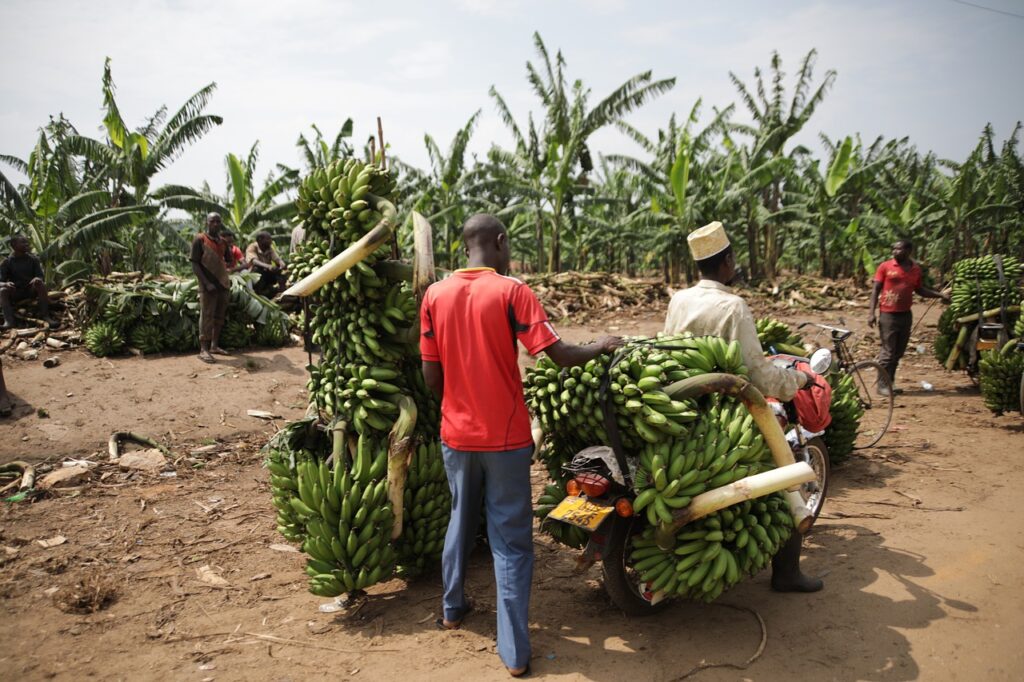
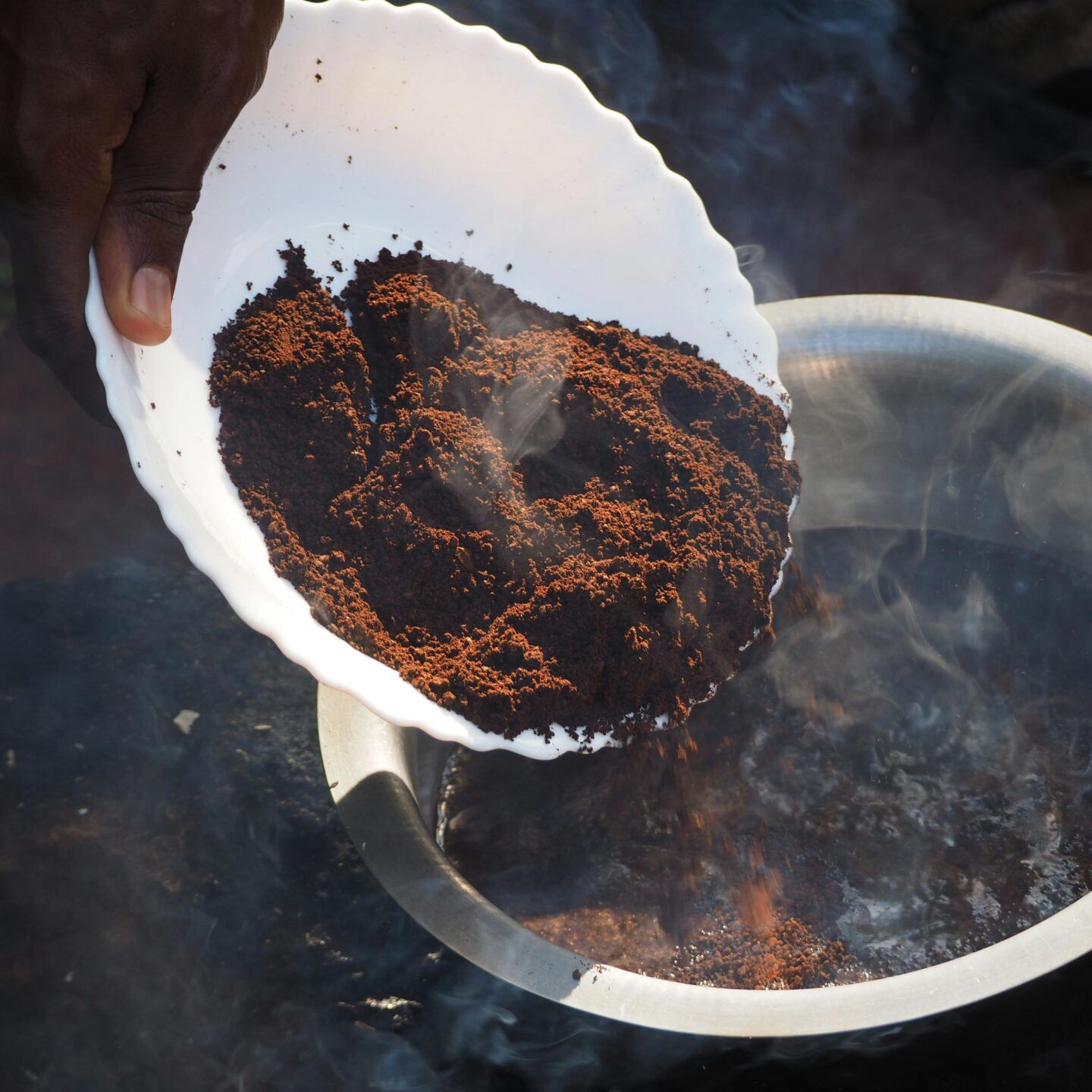
Shopping Locally
My city is known for producing the best coffee, a variety known as Robusta.
The best food market in Kampala is the weekly SouthSide Farmers Market, where you’ll find speciality food vendors and fresh produce from both organic-certified farms and also those that are organically managed.
The best market to buy everyday items like clothes, accessories, home goods and tourist items is the indoor-outdoor Nakasero Market (where these wares are available inside).
To buy real local souvenirs, I always take visitors to Bagala Craft Market. The products — ranging from sculptures to baskets to woven and wearable items — are hand-made locally, and the vibe is genuine and warm thanks to the friendly faces selling their handicrafts here.
We know to avoid using foreign currency as it will be hard to make any purchases; most transactions take place with Ugandan currency (the shilling) and sellers will decline any other form.
Getting Deeper Into Kampala
A great book to learn more about my city is Ghosts of Kampala: The Rise and Fall of Idi Amin by George Ivan Smith, an observer’s account of the international tragedy of Amin’s rule.
Most people know about Queen Elizabeth National Park, called the ‘Medley of Wonders’ in tribute to its profusion of wildlife, but another important site to visit is The Kasubi Tombs — where the Kabakas (kings) and other members of the Buganda royal family were buried — as this place means so much to the Ugandan people.
Though destroyed by a fire, the tombs are being rebuilt and carefully restored in a manner befitting their spiritual and political stature. At the tombs, you will get to know the Buganda kings as you gaze at the royal regalia that once belonged to them.
My city is a place people are attracted to because of its dynamism. In keeping with its status as Uganda’s capital city, the local buzz, lively activities and exciting festivals keep visitors entertained.
Most people think of my city as just the capital of a landlocked African country, but really this is a destination that sets an example to show just how much communities can gain and grow due to tourism. In Kampala, in addition to the city’s bustling appeal, you can find everything there is to admire in nature, concentrated in one place: bird watching, wildlife reserves and many different flora species.
Locals are proud that all of this variety for visitors creates a valuable sustainable growth opportunity for the country at large and benefits for local people in particular — a win-win for both humans and wild creatures too.
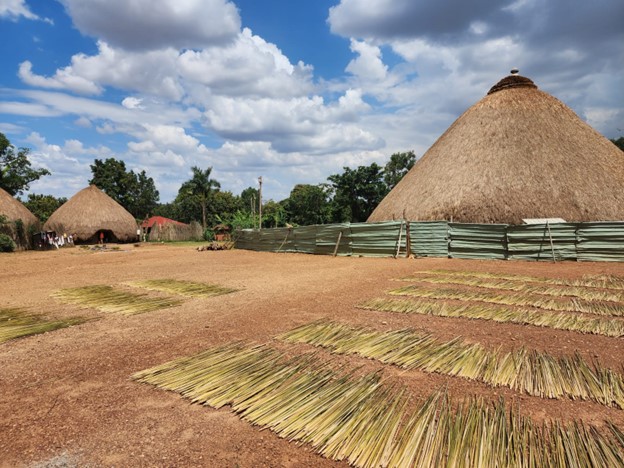
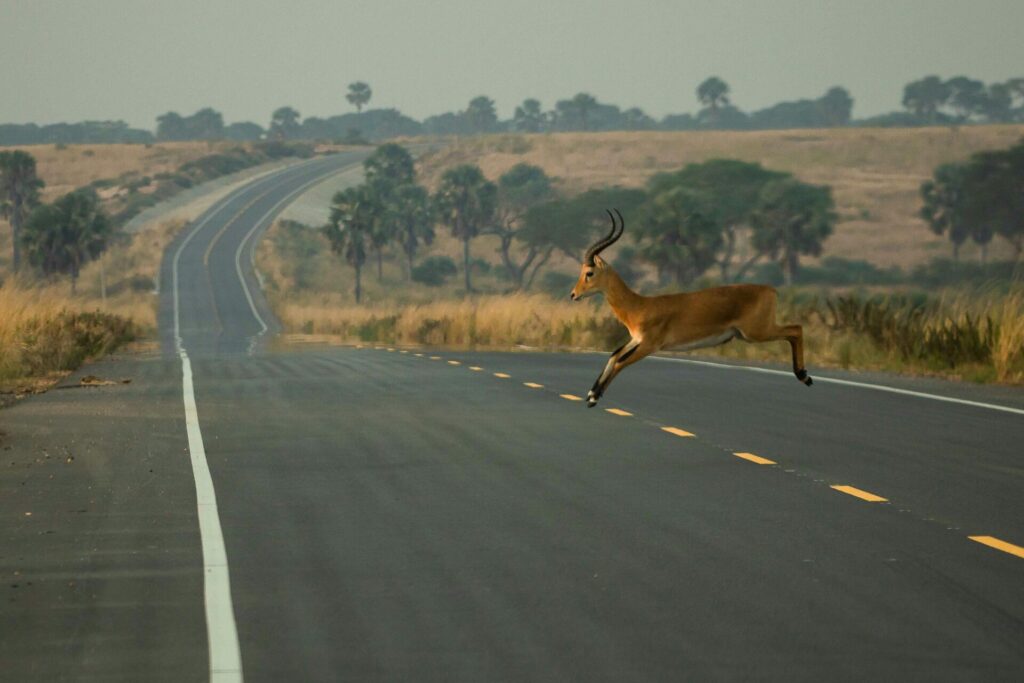
Getting Around Kampala
One thing you should know about getting around my city is that minibuses (matatus) will save you a lot of money since they are the cheaper mode of transport.
The best way to travel in my city to have as little impact as possible is walking.
Another transport choice is to hop on a motorbike, or boda-boda — this is actually faster than the minibuses, though not for the faint of heart. But if you are daring, in a hurry and need to beat traffic, boda-bodas are certainly quick!
Outside The City
To get away and into the outdoors, I enjoy going to Jinja, three hours to the west of Kampala. Here the source of the Nile, at Coronation Park, is marked by a garden and a statue of British explorer John Hanning Speke, the first European to lay eyes on this spot.
For a day trip just beyond my city, I like to visit Entebbe and pay a visit to the Uganda Wildlife Education Centre, where I get to learn about conservation as well as being able to interact with the animals one-on-one.
Many people will head to the reptile village and botanical gardens of Entebbe, but locals know to go to Kibale National Park to trek, see the mountain gorillas and chimpanzees, and commune with the surroundings while enjoying the company of the primates.
I really enjoy the view of my city from the top of the Sheraton Kampala Hotel, where the panorama of the capital is laid out before me, with iconic landmarks on view like the Independence Monument and the piano-shaped National Theatre.
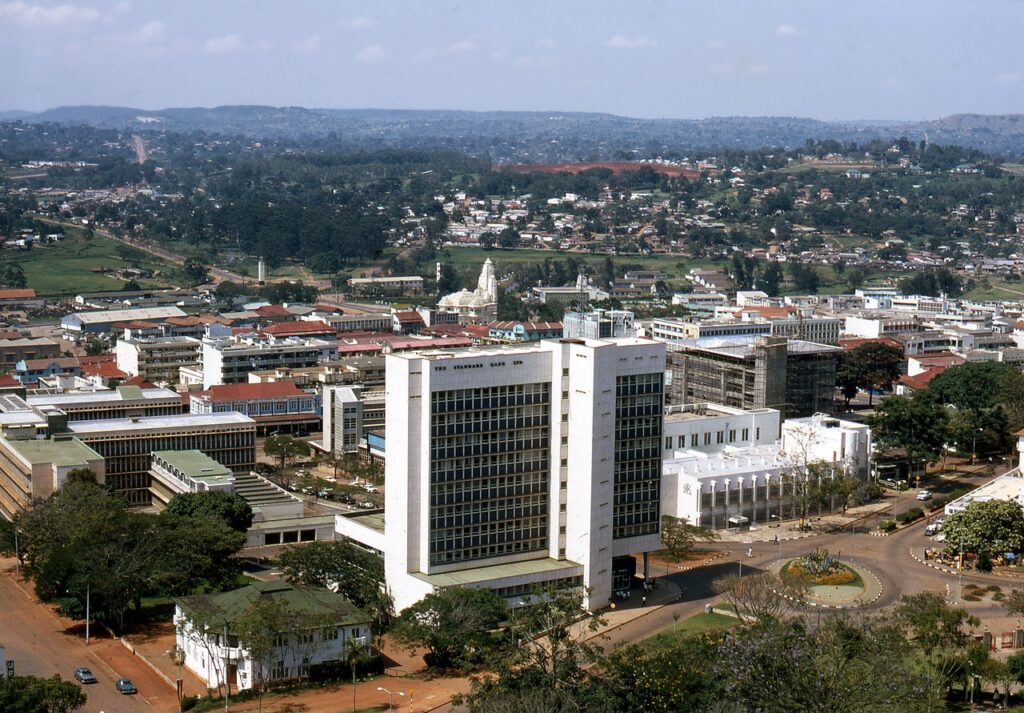
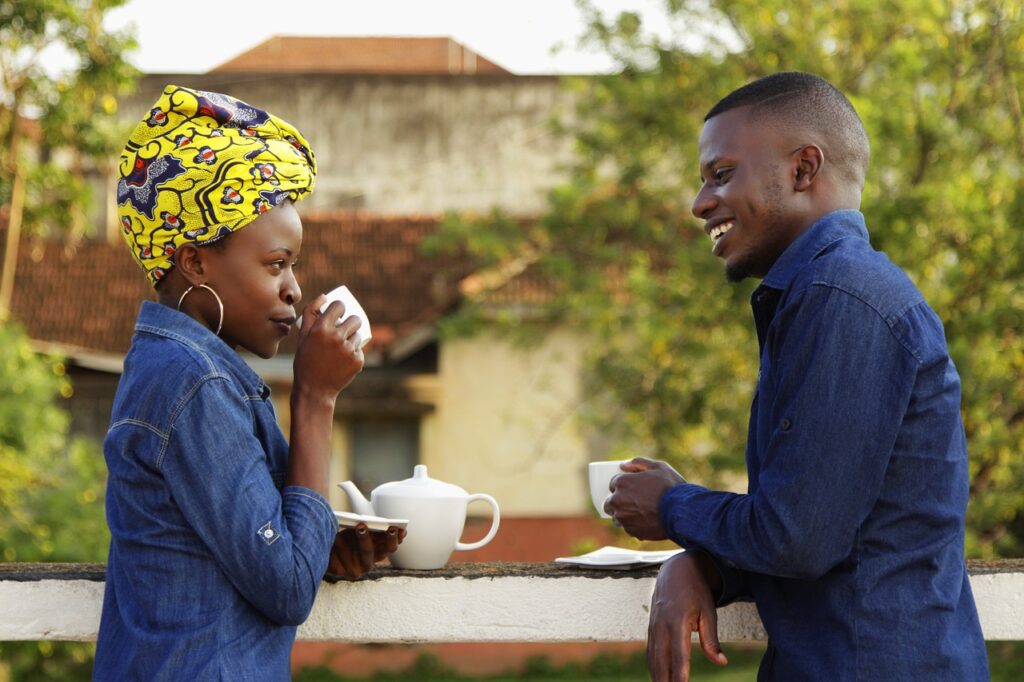
Connecting with Locals
When I want to have fun and celebrate being out of the city, I go to the Griffin Falls Camp, a gem in the heart of Mabira Forest, for some zip lining, to recharge with activities like archery and camping, and to revel in nature. For those brave souls made for thrill-seeking, the challenge of climbing to the top of the canopy to soar through the treetops is well worth it.
To hang out with my friends at a real insider spot, I enjoy Endiro Coffee where perfectly brewed Ugandan coffee is served. Endiro’s vision is to ‘brew good’ by being a company that partners with others to end child vulnerability globally through coffee and its people, related products, profits, services, spaces and stories. Knowing that what’s in your cup is grown locally is also quite encouraging; you’re supporting the growth of local businesses.
The best resource for finding out what’s going on around town is eventbrite.com. The website helps you find the events happening in Kampala during your stay.
When I want to enjoy my city without spending much (or any) money, I visit Rafiki Memorial Wildlife Conservation Initiative, aimed at helping mountain gorillas and their habitats, as well as empowering the surrounding communities with necessary education on how to achieve sustainable incomes.
The live music at Otters Bar is my first choice for contemporary hits and good vibes. For dancing, I go to Planet Sports; and for traditional music, Ndere Cultural Centre is the place to enjoy Ugandan cultural dances and music too. Their cooking lessons also teach people how to prepare local dishes.
Finding Solitude in Kampala
When I want to go somewhere to sit and relax in my incredible city, the seclusion of the Rainforest Lodge in Mabira Forest leaves me revitalised when I need some downtime. Apart from being a great place to unwind, it’s hard not to be dazzled by the forest’s resident 312 species of trees, 315 species of birds, 218 types of butterflies and 23 small mammals.
The place that makes me proudest of my city is the Uganda Museum, where the history of my people is well preserved and the country’s character is captured in all its glory. Being immersed in the familiarity of my own culture, and seeing how well it’s represented here, keeps me grounded.
Visitors can begin to understand just how far we have come since the days of the infamous Idi Amin Dada Oumee and his brutal dictatorship, and the museum also gives you a true sense of the rich cultural heritage of the Ugandans.
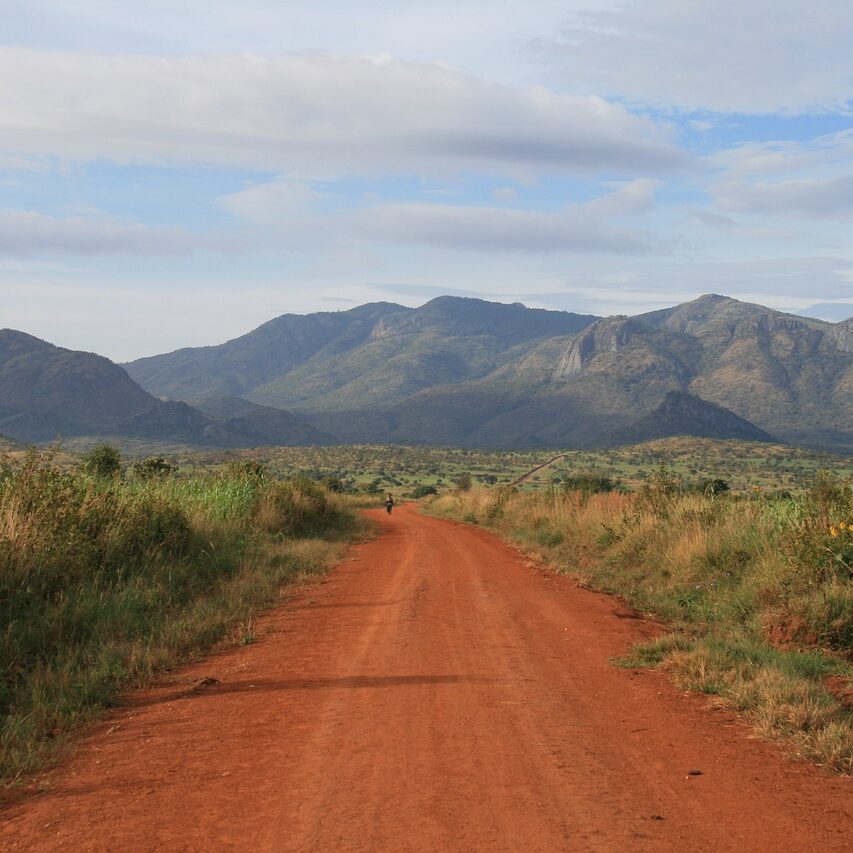
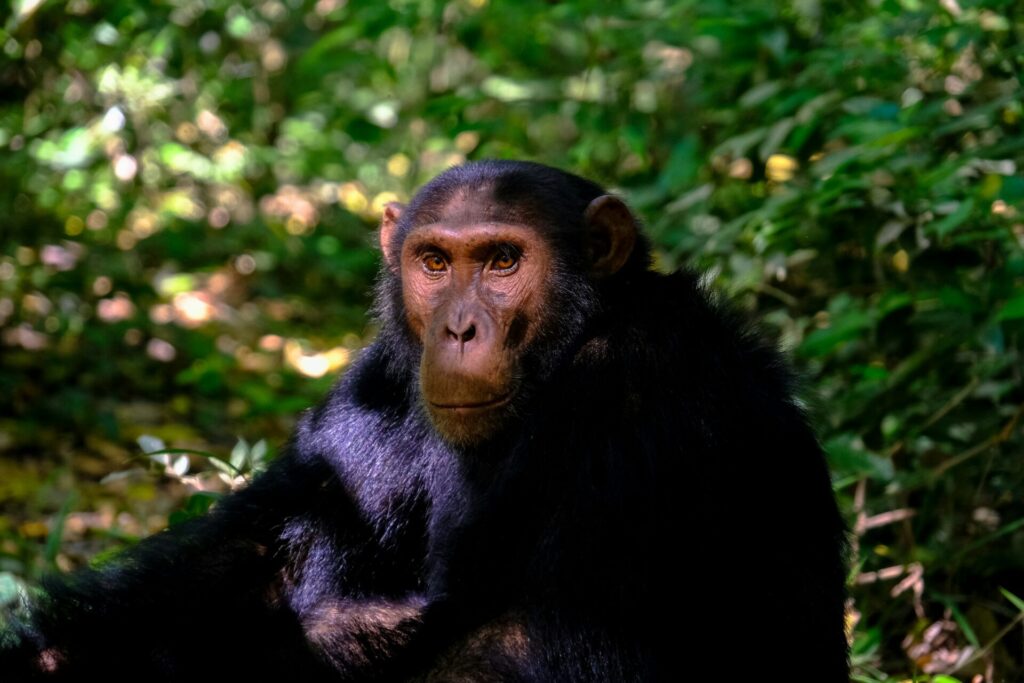
When the Seasons Change, This City Shines
For wildlife spotting at its peak, I recommend the long dry season (June, July and August). Trekking with the mountain gorillas and chimpanzees is easily doable then, due to the low vegetation that doesn’t obstruct walking or hinder views.
Travellers should book their gorilla permits in advance and wear light, comfortable clothing that makes it easy to traverse the trekking trails (also ensuring they carry sunscreen with them). The skies during these months are nicely clear and adrenaline fans can indulge in water activities like kayaking and boat racing.
The short rainy season (September, October and November) is the best time to bird watch and witness the dry plains coming to life in striking shades of emerald. Since the vegetation is low and still growing at this point, it is easier to spot animals seeking out watering holes. Accommodation occupancy is low and rates are affordable.
The short dry season (December, January and February) here is magical when you can bask in the warm sun and enjoy wildlife viewing and safaris too. December is a particularly special time, if you plan to be here when Christmas is being celebrated.
The long rainy season (March, April and May) is excellent for looking at the green scenery that is bursting into life spurred on by the rains. There are also not many people visiting, so you’ll have ample time and space to enjoy your activities. When rainfall proves a hindrance to hiking, this is the ideal opportunity to explore the historical and cultural sites where you can learn a thing or two about this amazing country.

